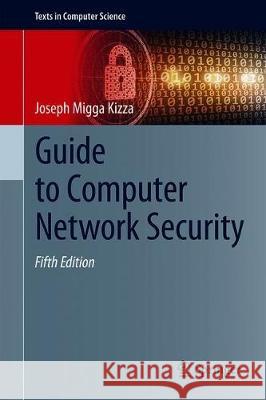Guide to Computer Network Security » książka
topmenu
Guide to Computer Network Security
ISBN-13: 9783030381400 / Angielski / Twarda / 2020 / 595 str.
Kategorie:
Kategorie BISAC:
Wydawca:
Springer
Seria wydawnicza:
Język:
Angielski
ISBN-13:
9783030381400
Rok wydania:
2020
Wydanie:
2020
Numer serii:
000215067
Ilość stron:
595
Waga:
0.99 kg
Wymiary:
23.8 x 16.38 x 2.74
Oprawa:
Twarda
Wolumenów:
01











